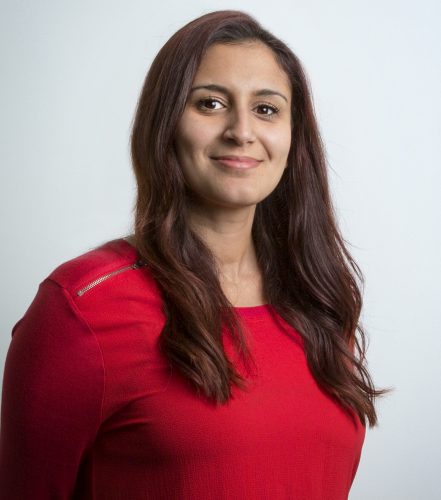News >

B&T Women To Watch: OMD’s Marelle Salib
This article was originally published by B&T.
At B&T, we are staunch believers that every woman and her achievements should be celebrated, every day and always… That’s why we launched our annual B&T Women in Media Awards – to recognise the amazing accomplishments of women across the marketing, communications and advertising industry.
In honour of our WIM Awards, we’re chatting to industry powerhouses; women we should all be keeping an eye on — women to watch.
Today we’re hearing from Marelle Salib, head of trading at OMD Sydney.

I believe the B&T Women in Media Awards are important because it supports and elevates the extraordinary women in media by celebrating their success and triumphs. It’s an opportunity for them to tell their story, to influence and inspire other women in media to give them the confidence to shine.
One of the most influential women in my life is my friend who both inspires and guides me. She’s taught me balance, humility, bravery and the art of diplomacy. She’s been my constant support, giving me a pep talk when I’ve needed it, grounded me and challenging me to constantly improve and grow as a person.
Thinking about the biggest impediment to equality in the workforce, I believe it’s parental employment policies. There need to be parental employment policies offering paid and unpaid leave entitlements as well as flexible working arrangements for both mothers and fathers. It should be recognised and accepted within society that fathers need to participate and be present in family life just as much as mothers.
Men are currently perceived as a greater long-term investment in many organisations, in most circumstances they will not be the primary caregiver to children, and unlikely to leave the workforce for a short amount of time, or indefinitely.
Hence, the right culture in the workplace is paramount. Flexibility in the workplace and support for working mothers and fathers alike is necessary. True equality is being seen as equals, so how do we achieve this if only working mothers are offered flexibility? According to the Australian Institute of Family Studies; “Almost 60% of fathers do not use any flexible working arrangements to help care for children compared to 25% of mothers”.
Family responsibilities are a reality for men and women alike. In Australia, a larger number of women stop working after having a child than in other APAC regions. This is largely driven by flexibility in the workplace and the cost of childcare where the gender salary gap creates more incentive for fathers to be in the workforce.
The traditional 9am-5pm, five-day work week doesn’t promote females returning to the workplace after having a baby. Parents need to feel valued and not discriminated against. I encourage businesses to consider the impact that flexible working hours and working weeks would have to the quality of staff retained, quality of work they produced and overall staff morale. For both men and women alike.
There are many businesses within media and marketing who have flexible working cultures and promote a family life balance. These businesses can help inform others and set the standard for expectations within the workplace.
I have been blessed that OMD is one of those businesses. Support and flexibility are at the core of OMD, with 80 per cent of OMDers seeing a positive impact from flexible working. Work/life balance is the norm. Returning to work after maternity leave can be daunting and stressful, I found this not to be the case at OMD. I returned to work four days a week with flexible hours each day. This has allowed me to be present at work and at home for my family.
Quickfire questions
What’s a little something everyone can do today that could potentially make a massive change in the struggle for equality?
Identify unconscious bias within ourselves and others and have the courage to call it out.
Challenge one’s own perceptions of what society dictates as the traditional roles of men and women within the home and the workplace, how valid are these?
If you were PM, what law would you change/introduce right now to improve equality?
Take learnings from Finland. For heathier future generations we should focus on the child’s rights, rather than the parents, and afford both fathers and mothers unified paid parental leave. Children should be awarded every opportunity to spend time with both parents.
What is the best advice anyone has ever given you?
Don’t ever stop learning and growing as a person.


